Oriental Studies – Iranian Studies
Full-time, first and second cycle studies in Polish.
The field of Oriental Studies – Iranian Studies is highly interdisciplinary, although the leading discipline is the study of culture and religion. The unique teaching programme is offered exclusively by the Faculty of Oriental Studies at the University of Warsaw, which has more than 90 years of experience in teaching Oriental/African cultures and languages, including Persian, as evidenced by the creation of the unique field of study in Oriental Studies – Iranian Studies. The teaching programme is based on many years of experience and practice in teaching and researching issues related to the culture of Iran and Afghanistan. The lecturers are specialists – in most cases the only ones in Poland – in issues related to this geographical and cultural area, conducting advanced scientific research supported by numerous publications in both Polish and foreign language publishing houses. Language classes are taught by native speakers. Additionally, in order to improve their qualifications and language skills, students have the opportunity to apply for a language or academic internship in Iran.
The expected learning outcomes are twofold: they guarantee the acquisition of extensive knowledge of various aspects of Iranian and Afghan culture and the ability to speak Persian. The programme provides a broad knowledge of literature, history, philosophy, religion and art of the Iranian and Afghan cultures and ensures the acquisition of advanced language skills and competences through intensive Persian language learning.
The comprehensive education provided by the oriental studies programme, which also covers the broadly defined humanities, allows for subsequent interdisciplinary research, as well as understanding the roots of contemporary world problems and attempts to find solutions for them. It provides students with a broad horizon, necessary to understand today’s problems and conflicts resulting from civilisational differences. The programme also enables the training of new staff in the field of cultural and religious studies and other scientific disciplines. The implementation of the programme of study in Oriental Studies – Iranology allows for the achievement of cognitive synergy and the shaping of a new trend of thinking and social awareness, which consists of – so necessary today – understanding, openness and tolerance towards others, and recognising the value of one’s own culture and ethical attitudes stemming from the European circle and the culture of Iran.
The acquired knowledge will allow the graduate of the faculty of oriental studies – iranology to correctly navigate in the sphere of general issues concerning the theory and practice of Iranian and Afghan culture. The graduate will understand the diversity of cultures and civilisations, which will allow them to participate in the process of intercultural understanding and cooperation. They will acquire the basis for theoretical reflection on the cultures of Iran and Afghanistan. They will be able to analyse basic phenomena relating to the culture of Iran and Afghanistan. The tool for analysing these phenomena will be the graduate’s good linguistic and methodological preparation in the fields of cultural and religious studies, linguistics, philosophy, history, literary studies and art history.
Graduates will be ready to work in cultural institutions, the media, editorial offices and public administration. Increasing economic contacts with the Muslim world and the Middle East, including Iran, mean that the labour market needs experts who are familiar with the language and the cultural and social realities of the countries in this region. Political and diplomatic relations with countries such as Iran and Afghanistan require the employment of specialists in the field of Iranian and Afghan language and culture, as well as Muslim culture, who are graduates of oriental studies – Iranian studies. In addition, the graduate will be prepared to undertake second-cycle studies.
The beginnings of Iranian studies at the University of Warsaw date back to the 1930s. The first two decades after World War II brought a slow but steady development of Iranian studies through the efforts of Maria Sktadanek and Bogdan Sktadanek, both of them graduates of the Institute of Oriental Studies. The first enrolment in the Iranian Studies was in 1971. In 1996, the Senate of the University of Warsaw established the Department of Iranian Studies headed by Prof. Maria Sktadanek.
Iranian studies gradually expanded into various areas, retaining a distinct philological background. Ananiasz ZajiJczkowski translated the ghazals of Hafez, Barbara Majewska and Zofia J6zefowicz-Czabak (now J6zefowicz-Niedzwiecka) continued rendering Persian verse and prose into Polish. Other scholars of Iranian studies in Warsaw translated philosophical and historical masterpieces. The most significant of these is a critical Polish translation by Prof. Bogdan Sktadanek of the History of Sultan Mas’ud of Abu’/ Fazl Bayhaqi. The contribution made by Maria Sktadanek and Bogdan Sktadanek with their research, department management, and their educational work to developing the Department of Iranian Studies has been invaluable. Prof. Maria Sktadanek studied the poetry of Hafez and Oriental theory of literature. Her other interests have included Persian classical literature, mythology, and religion. Prof. Bogdan Sktadanek, the only Polish specialist on the history of Medieval Persia and a leading authority in this field, pioneered studies in the history of Iran. His interests include socio-political processes in Persia after the Arab conquest. His three volume History of Persia covering the period from the emergence of the Persian Empire to the fall of the Pahlavi dynasty is the effect of his research and teaching, the first publication of its kind in Polish.
The academic work of Maria and Bogdan Sktadanek opened up major possibilities for a further development of Iranian studies at the University of Warsaw, which were expanded to encompass research on Afghanistan.
The Department of Iranian Studies offers a three-year first-cycle and a two-year second cycle courses. The Department educates specialists in Persian language, social and cultural issues of Iran and Afghanistan, Persian and Afghan literature and culture, as well as in the religions, philosophy, and art of Iran and Afghanistan.
The Department of Iranian Studies conducts research in the following fields:
- History of Iran and Afghanistan
- Classical and modern Persian literature
- Archetypical notions in the culture of Iran and Afghanistan
- Classical and modern Persian philosophical and religious thoughts
- Iranian cinema
- Sufism and Shiite thought in Iran and Afghanistan
- Social, political, and cultural issues of Iran and Afghanistan
- Persian, Dari, and Middle Persian languages
- Legacy of Pre-Islamic Persia
- Ethics in modern Iran
- Political and social thought of Iran in 19th and 20th centuries
- Research on the mental status of the Shiite society of Iran using methods of modern sociology, psychology, and Oriental studies
- History of Polish-Iranian relations
More detailed information about the programme and the field of study can be found on the website: www.iranistyka.orient.uw.edu.pl
Study Programmes
- Oriental Studies – African Studies
- Oriental Studies – Arabic Studies
- Oriental Studies – Egyptology
- Oriental Studies – Hebrew Studies
- Oriental Studies – Indian Studies
- Oriental Studies – Iranian Studies
- Oriental Studies – Japanese Studies
- Oriental Studies – Korean Studies
- Oriental Studies – Culture of Ancient Near East
- Oriental Studies – Mongolian and Tibetan Studies
- Oriental Studies – Chinese Studies
- Oriental Studies – Turkic Studies
- Cross-cultural Communication – Asia and Africa
- Religions of Asia and Africa: Buddhism, Islam and Others
- Eastern Studies





